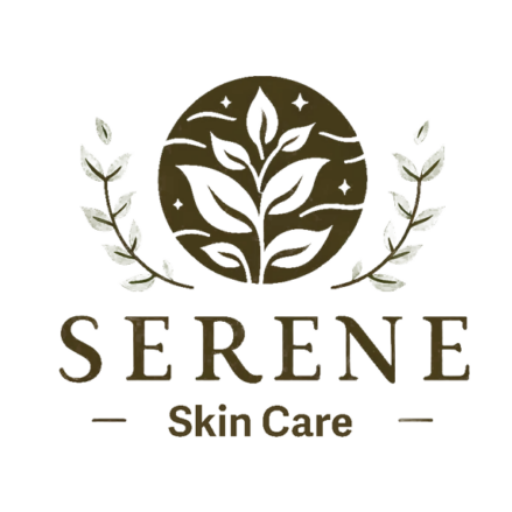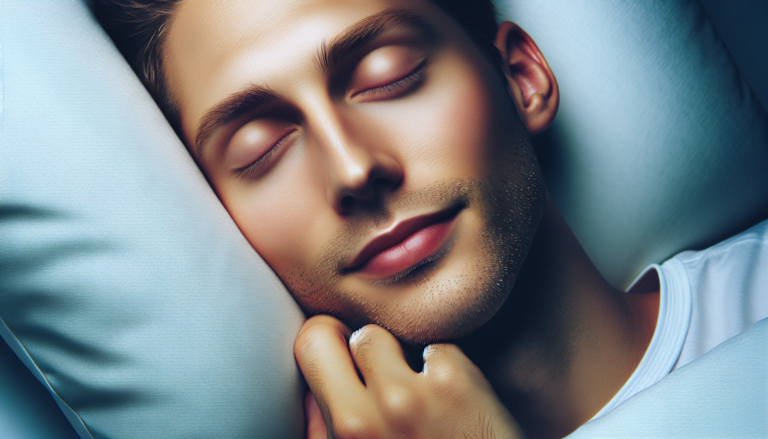Maintaining healthy skin is a constant endeavor, and it goes beyond simply using skincare products. In the article “The Intersection Of Diet, Lifestyle, And Skin Health,” the importance of diet and lifestyle on skin health is explored. This insightful piece delves into the ways in which our food choices, physical activity, and stress levels can significantly impact the appearance and overall health of our skin. By understanding this intersection and making conscious choices, readers can embark on a journey to improve their skin from within and achieve a vibrant and youthful complexion.
Impact of Diet on Skin Health
Good nutrition plays a crucial role in maintaining healthy skin. The foods we consume provide essential nutrients that support skin health and contribute to a youthful, radiant complexion. A well-balanced diet rich in specific nutrients can help nourish our skin from within, while certain foods may aggravate existing skin conditions or contribute to skin-related issues.
Nutrients for Healthy Skin
Several key nutrients are known to have a positive impact on skin health. These include vitamins C, E, and A, as well as omega-3 fatty acids, zinc, and antioxidants. Vitamin C is essential for collagen production, which helps maintain the skin’s firmness and elasticity. Vitamin E is a potent antioxidant that protects against free radicals and helps maintain skin moisture. Vitamin A supports cell turnover, promoting a healthy complexion, and omega-3 fatty acids help reduce inflammation and improve skin hydration. Zinc plays a vital role in wound healing, while antioxidants help combat the oxidative stress that can contribute to premature aging.
Foods That Promote Skin Health
Incorporating certain foods into our diet can have a positive impact on our skin. Citrus fruits, such as oranges and grapefruits, are rich in vitamin C and antioxidants, promoting collagen production and protecting against damage from free radicals. Leafy green vegetables like spinach and kale are packed with vitamins A and E, helping to maintain healthy skin cell turnover and hydration. Fatty fish, such as salmon and mackerel, are excellent sources of omega-3 fatty acids, reducing inflammation and promoting a radiant complexion. Nuts and seeds, like almonds and chia seeds, provide both zinc and antioxidants, supporting skin repair and protection. Finally, green tea, with its high antioxidant content, can help reduce inflammation and protect against UV damage.
Foods That Can Worsen Skin Conditions
While some foods can benefit the skin, others have the potential to worsen existing skin conditions or trigger skin-related issues. High-glycemic foods, such as refined carbohydrates and sugary snacks, can lead to increased oil production and inflammation, potentially exacerbating acne breakouts. Dairy products, especially those high in hormones like milk and cheese, may also contribute to acne flare-ups in some individuals. Spicy foods and excessive consumption of alcohol or caffeine may result in increased skin redness and flushing. For those with particular sensitivities or allergies, it’s essential to identify and avoid trigger foods that may induce allergic reactions or skin inflammation.
Lifestyle Factors Affecting Skin Health
In addition to diet, several lifestyle factors can significantly influence the health and appearance of our skin. Stress levels, quality of sleep, and regular exercise routines all play vital roles in maintaining optimal skin health.
Stress and Skin Health
Uncontrolled stress can wreak havoc on our skin. The body releases stress hormones like cortisol, which can increase oil production, leading to breakouts and acne. Additionally, stress can impair the skin’s natural barrier function, making it more susceptible to external irritants and moisture loss. Finding effective stress management techniques, such as exercise, meditation, or engaging in hobbies, can help maintain healthier skin.
Sleep and Skin Health
A good night’s sleep is essential for rejuvenating the skin. During sleep, the body repairs and regenerates skin cells, promoting a brighter complexion and reducing the appearance of fine lines and wrinkles. Lack of sleep can result in a dull, tired-looking complexion, increased skin sensitivity, and delayed wound healing. Establishing healthy sleep habits, such as maintaining a consistent bedtime routine and creating a sleep-friendly environment, can contribute to improved skin health.
Exercise and Skin Health
Regular exercise not only benefits our overall health but also has a positive impact on our skin. Engaging in physical activity promotes healthy blood circulation, delivering essential nutrients and oxygen to the skin cells. This increased blood flow can give the skin a natural, radiant glow. Moreover, exercise helps reduce stress levels, which in turn can improve skin conditions such as acne and eczema. However, it’s important to cleanse the skin thoroughly post-workout to remove sweat and bacteria that may build up and lead to breakouts.
Hormonal Influence on Skin Health
Hormonal fluctuations throughout various stages of life can significantly affect the health and appearance of our skin. Understanding how hormones impact the skin can help individuals address specific skincare concerns and make informed choices for optimal skin health.
Puberty and Skin Health
Puberty is a time of significant hormonal changes and can often result in the development of various skin concerns, such as acne. Increased levels of androgens during puberty lead to increased sebum (oil) production, clogged pores, and the proliferation of acne-causing bacteria. Maintaining a consistent skincare routine and seeking professional guidance can help manage these skin challenges effectively during this transitional period.
Menstrual Cycle and Skin Health
Women may experience changes in their skin throughout their menstrual cycle due to fluctuating hormone levels. During the first half of the cycle, estrogen levels rise, contributing to improved skin clarity and radiance. However, in the second half of the cycle, progesterone levels increase, leading to more oil production and potential breakouts. Understanding these hormonal shifts can help individuals adapt their skincare routine accordingly and address specific concerns during each phase of the menstrual cycle.
Pregnancy and Skin Health
Pregnancy brings about significant hormonal changes, which can have both positive and negative effects on the skin. Many pregnant women experience that coveted “pregnancy glow” due to increased blood circulation and hormonal changes. However, fluctuating hormone levels can also lead to skin issues such as hyperpigmentation (melasma), acne, and stretch marks. Safe and appropriate skincare during pregnancy, along with regular check-ups with a healthcare professional, can help manage these changes and maintain skin health.
The Gut-Skin Connection
The health of our gut and skin is closely interconnected, with imbalances in gut health often manifesting in various skin conditions. Understanding the relationship between gut health and skin health can help individuals address the root causes of certain skin issues.
The Role of Gut Health in Skin Health
A healthy gut microbiome plays a crucial role in supporting overall skin health. The gut acts as a barrier, preventing harmful substances from entering the bloodstream and potentially affecting the skin. Imbalances in gut bacteria can result in increased inflammation, which may contribute to conditions like acne, eczema, and psoriasis. Supporting and maintaining gut health through a balanced diet rich in fiber and fermented foods, along with probiotic supplementation if necessary, can positively impact the skin.
Probiotics and Skin Health
Probiotics, often referred to as “good bacteria,” can help restore and maintain a healthy gut microbiome. Consuming probiotic-rich foods like yogurt, sauerkraut, and kefir, or taking high-quality probiotic supplements, may help reduce skin inflammation, promote healing, and support a healthy skin barrier function. However, it’s important to note that individual responses to probiotics may vary, and consulting with a healthcare professional is advisable, especially for those with existing skin conditions.
Impact of Gut Imbalances on Skin
Imbalances in gut health, such as an overgrowth of harmful bacteria or an imbalance of beneficial bacteria, have the potential to affect the skin negatively. Some individuals may experience increased skin inflammation, redness, or acne due to these imbalances. In such cases, addressing gut health through dietary modifications and appropriate supplementation, under the guidance of a healthcare professional, may significantly improve skin conditions.
Impact of Hydration on Skin Health
Proper hydration is crucial for maintaining healthy skin. Our skin needs an adequate amount of moisture to function optimally, and dehydration can lead to a range of skin problems.
Importance of Hydration for Healthy Skin
Drinking enough water throughout the day is essential for maintaining the skin’s natural moisture balance. When adequately hydrated, the skin appears plump, luminous, and more supple. Proper hydration supports proper cell turnover, helps maintain the skin’s elasticity, and aids in the delivery of essential nutrients to the skin cells. By ensuring consistent hydration, individuals can promote a healthier complexion and potentially reduce the appearance of fine lines and wrinkles.
Effects of Dehydration on Skin
Dehydration can have detrimental effects on the skin’s overall health and appearance. When the body lacks sufficient water, the skin becomes dry, flaky, and dull. In severe cases, dehydration can lead to itchy skin, increased sensitivity, and a compromised skin barrier function. It is important to note that while drinking water is crucial, hydrating the skin through effective moisturization is equally important in achieving and maintaining a healthy skin balance.
Alcohol and Skin Health
Excessive alcohol consumption can have negative effects on the skin, affecting its appearance and overall health.
Alcohol’s Impact on Skin Health
Alcohol can dehydrate the body and, consequently, the skin. It is a diuretic, meaning it increases urine production and contributes to fluid loss. This dehydration can lead to dryness, dullness, and a more pronounced appearance of fine lines and wrinkles. Additionally, alcohol can disrupt the balance of gut bacteria, potentially aggravating skin conditions such as acne and rosacea.
Alcohol-Related Skin Conditions
Long-term excessive alcohol consumption can lead to specific skin conditions. One such condition is rosacea, a chronic inflammatory skin disorder characterized by facial redness, visible blood vessels, and occasional acne-like breakouts. Alcohol can trigger or exacerbate the symptoms of rosacea. Another condition is alcoholic dermatitis, which manifests as red, scaly, itchy patches, often on the face and body, due to the direct harmful effects of alcohol on the skin. Limiting alcohol intake and seeking professional skincare advice can help manage and mitigate these alcohol-related skin conditions.
Smoking and Skin Health
Smoking has significant detrimental effects on skin health, contributing to premature aging and increasing the risk of various skin conditions.
Effects of Smoking on Skin Aging
Smoking accelerates the aging process by damaging the collagen and elastin fibers responsible for maintaining the skin’s structure and elasticity. The chemicals present in cigarettes, particularly nicotine, restrict blood flow to the skin, leading to a dull, lackluster complexion. Over time, smoking causes the skin to appear thinner, looser, and more prone to wrinkles and sagging. The longer an individual smokes and the more cigarettes they consume, the more pronounced these effects become.
Skin Conditions Associated with Smoking
In addition to premature aging, smoking is associated with several skin conditions. Smokers are at a higher risk of developing skin cancer, as smoking weakens the immune system’s ability to fight off cancer cells. Moreover, smoking can worsen existing skin conditions such as psoriasis and increase the severity and frequency of flare-ups. Quitting smoking is crucial for improving overall health and preserving skin quality.
Sun Exposure and Skin Health
The impact of sun exposure on the skin cannot be underestimated. While the sun provides essential vitamin D, overexposure can lead to significant skin damage and increase the risk of skin cancer.
UV Radiation and Skin Damage
The sun emits ultraviolet (UV) radiation, which can cause profound damage to the skin. Prolonged exposure to UV radiation can result in sunburns, premature aging, and an increased risk of skin cancer. UV radiation damages the DNA in skin cells, leading to mutations that can contribute to the development of skin cancer over time. It is essential to protect the skin from excessive sun exposure through the use of sunscreen, protective clothing, and seeking shade during peak sun hours.
Importance of Sun Protection
Applying sunscreen with a high SPF (Sun Protection Factor) is crucial for protecting the skin from harmful UV radiation. Sunscreen should be applied generously and reapplied every two hours, or more frequently if swimming or sweating. Wearing protective clothing, including wide-brimmed hats and sunglasses, can further shield the skin from direct sun exposure. By incorporating sun protection strategies into our daily routine, we can significantly reduce the risk of skin damage caused by the sun.
Skincare and Skin Health
Establishing a consistent skincare routine is essential for maintaining optimal skin health. Effective cleansing, moisturizing, and using products with beneficial ingredients can contribute to a healthier and more radiant complexion.
Cleansing and Moisturizing
A proper cleansing routine is crucial for removing dirt, oil, and impurities that can clog pores and contribute to skin issues. Using a gentle cleanser suited to one’s skin type helps maintain a clean, healthy complexion. After cleansing, applying a moisturizer helps lock in hydration, protecting the skin’s moisture barrier and promoting a smooth, supple appearance. It is important to choose a moisturizer appropriate for one’s skin type to ensure optimal results.
Ingredients for Healthy Skin
In addition to cleansing and moisturizing, using skincare products with beneficial ingredients can make a significant difference in skin health. Ingredients like hyaluronic acid help retain moisture in the skin, promoting hydration and reducing the appearance of fine lines. Vitamin C and niacinamide are potent antioxidants that help brighten the skin and even out skin tone. Retinol, a form of vitamin A, can assist with cell turnover and improve the overall texture and elasticity of the skin. Incorporating these ingredients into a skincare routine, alongside other suitable products based on individual needs, can help achieve and maintain healthy skin.
Developing a Skincare Routine
Developing a personalized skincare routine is essential for addressing specific concerns and achieving optimal skin health. It is important to consider individual skin type, concerns, and sensitivities when selecting products. Consulting with a dermatologist or skincare professional can provide valuable guidance in establishing an effective skincare routine tailored to one’s unique needs.
How to Achieve a Healthy Balance
Maintaining a healthy balance in various aspects of life is crucial for overall well-being, and this includes skin health. By adopting specific strategies and making conscious choices, individuals can achieve a harmonious balance that supports optimal skin health.
An Overall Balanced Diet
Eating a well-balanced diet that includes a variety of fruits, vegetables, lean proteins, and whole grains is vital for overall health, including skin health. By prioritizing nutrient-rich foods and limiting processed and sugary items, individuals can promote a healthier complexion and reduce the risk of skin issues. It is also important to listen to the body’s hunger and fullness cues and avoid restrictive diets that may deprive the skin of essential nutrients.
Lifestyle Choices for Skin Health
In addition to diet, lifestyle choices significantly impact skin health. Managing stress through relaxation techniques, incorporating regular exercise, and prioritizing quality sleep are all beneficial for maintaining vibrant, glowing skin. Avoiding excessive alcohol consumption and quitting smoking are essential for preserving skin quality and reducing the risk of skin conditions associated with these habits.
Professional Dermatological Guidance
Seeking professional guidance from a dermatologist or skincare expert can provide valuable insights into individual skin concerns and help tailor a comprehensive skincare regimen. Professionals can provide personalized advice, recommend suitable treatments, and monitor any skin conditions, ensuring optimal skin health in the long term.
In conclusion, achieving and maintaining healthy skin encompasses a holistic approach that considers diet, lifestyle, and skincare practices. By incorporating nutrient-rich foods, managing stress levels, staying hydrated, protecting the skin from sun damage, and following an appropriate skincare routine, individuals can achieve a vibrant complexion and promote overall skin health. Adapting positive habits and seeking professional guidance when needed are essential steps towards achieving a healthy balance that supports optimal skin health and well-being.




